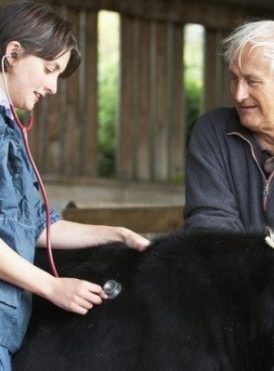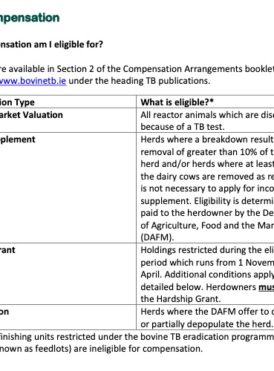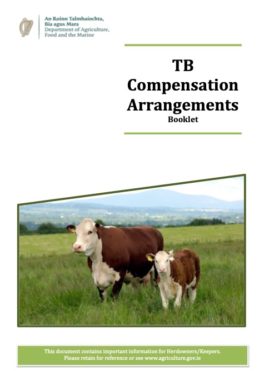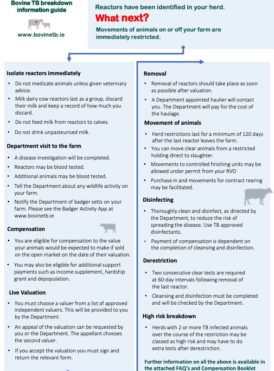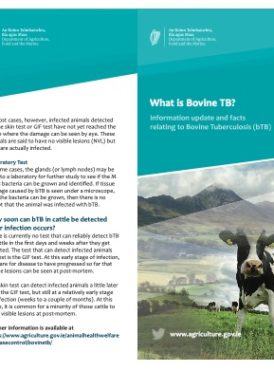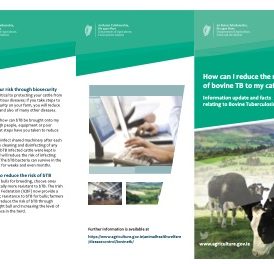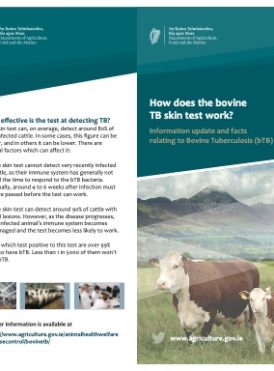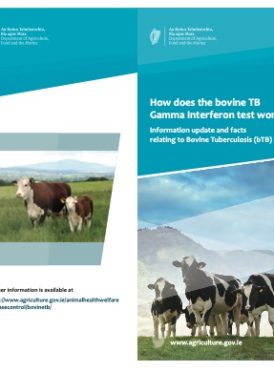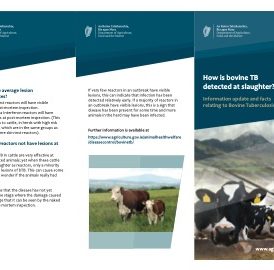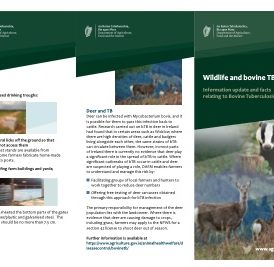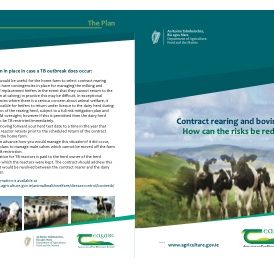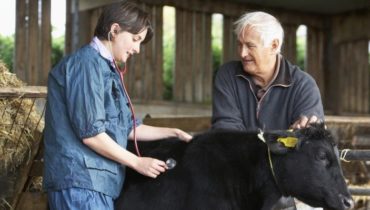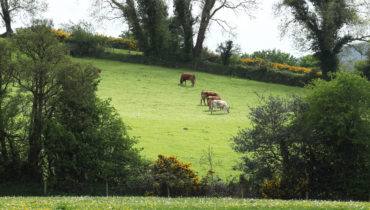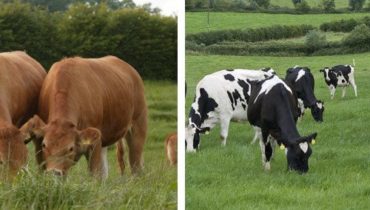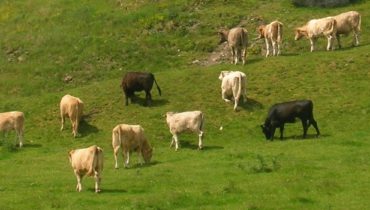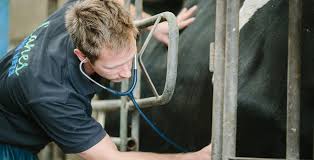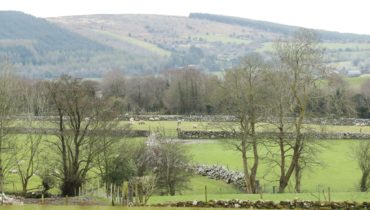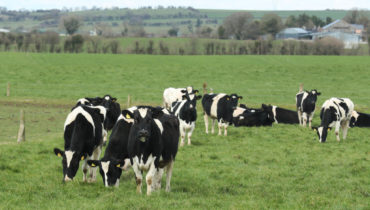TB Information
In recent years the levels of TB have increased throughout the country, reaching over 23,000 reactors last year, the highest number since 2009, with 4,624 herds experiencing restrictions.
Implementation of an effective Wildlife Control Programme is fundamental to achieving the objective of TB eradication. The Wildlife Control programme requires a significant increase in staff resources in order to ensure the effective implementation of the commitments given to the TB Forum and ultimately to reduce TB levels.
Between 2012 and 2020, the level of farmers direct contribution to the programme increased by 13.8% from €30.641m to €34.882m, funding from the National exchequer increased from €45.825m to €57.012m and the contribution from the EU reduced from €11.085m to €5.420m.
We must strive to eradicate TB from the national herd in the shortest feasible timeframe but in doing so we must be conscious of the impact controls have on farm families and their livelihoods who through no fault of their own experience TB outbreaks. The impacts of these controls must be kept to a minimum and farmers fully compensated for the effect they have on the functioning of the farm.
IFA Proposals
IFA has consistently set out the requirements of farmers in a new and more efficient programme.
An effective TB programme has three key components that must be addressed simultaneously to achieve eradication within the shortest feasible timeframes and to reduce the unacceptable and unsustainable burden on farms experiencing TB outbreaks.
The three key areas requiring amendment are;
- The Wildlife Control Programme
- The on-farm investigation of the outbreak
- The financial supports for farmers who have TB controls imposed on their farms.
Joint Oireachtas Committee
Opening Statement by IFA President Statement to the Joint Oireachtas Committee.
TB Implementation Group
TB Strategy Document
The TB strategy document was launched by the Minister for Agriculture Charlie McConalogue and includes key issues identified by IFA.
The key areas included in the strategy are;
- meaningful farmer involvement in the design and implementation of the programme,
- recognition of farmers labour as a contribution to the programme
- revisiting of the herd risk letters, herd categorisation and pre-movement testing,
- an enhanced Wildlife Control Programme,
- better on farm investigation of TB breakdowns and
- the recognition of the importance of financial supports to farmers whose farms are under TB controls.
The new strategy better reflects the key role of farmers in the programme and provides for meaningful involvement by farmers in the design and implementation of the strategy objectives through the Implementation and Financial Working Groups.
Maintaining Our High Health Status
IFA is acutely aware of the importance of maintaining the hard-won high health status of our national livestock herd as a major exporter of agriculture produce.
Farmers have and continue to support the efforts of the Department of Agriculture in eradicating TB from the national herd at an enormous direct and indirect cost.
IFA is demanding the eradication of TB from the national herd in the shortest feasible timeframes.
However, this cannot be achieved by further increasing the already enormous and disproportionate cost burden imposed on farmers in the programme.
The main contributing factors identified by the Department of Agriculture can be addressed in a practical and effective way that takes account of the farming dynamic in Ireland and the critical importance of animal movements and live exports.
IFA are actively engaged in the TB Forum process with the clearly outlined objective of eradicating TB from the National Herd while minimising the impact of controls on farms during this process.
DAFM Guides & Fact Sheets
DAFM Video Guides
Learn how to Clean and Disinfect your farm after an outbreak of TB
TB Reactors that don’t have visible lesion
What are bovine TB tests and how do they work – a step-by-step guide for Irish farmers
Compensation after a Bovine TB Breakdown
What happens if my Herd has a Bovine TB Breakdown
How to prevent your herd having further bovine TB breakdowns
How to stop TB from spreading between herds
Learn how to protect your herd from TB in Badgers and other Wildlife in Ireland

